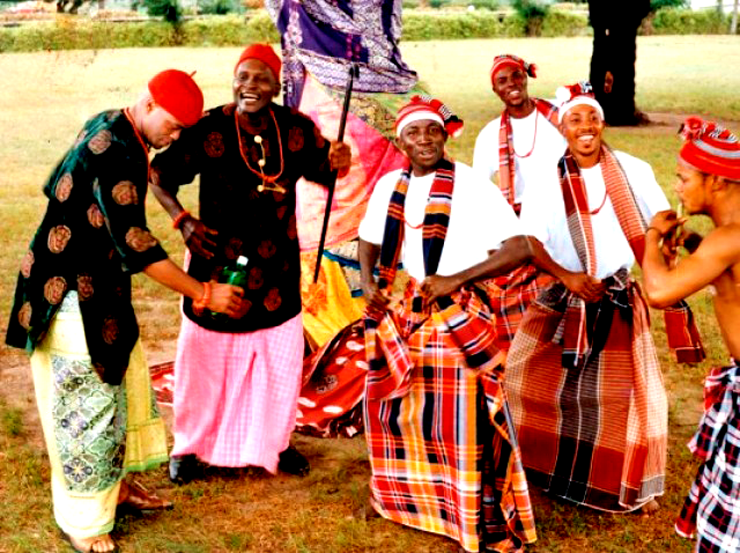Culture is one of the most important concepts within societies because it helps foster unity and love, in other words we must understand and recognize that it plays a crucial role in our social lives. It is important for shaping social relationships, maintaining and challenging social order, determining how we make sense of the world and our place in it, and in shaping our everyday actions and experiences in society. It is composed of both non-material and material things.
Culture defines the non-material aspects of the values and beliefs, language, communication, and practices that are shared in common by a group of people. Expanding on these categories, culture is made up of our knowledge, common sense, assumptions, and expectations.
It is also the rules, norms, laws, and morals that govern society; the words we use as well as how we speak and write them (what sociologists call “discourse”); and the symbols we use to express meaning, ideas, and concepts (like traffic signs and emojis, for example). Culture is also what we do and how we behave and perform (for example, theatre and dance).
It informs and is encapsulated in how we walk, sit, carry our bodies, and interact with others; how we behave depending on the place, time, and “audience;” and how we express identities of race, class, gender, and sexuality, among others. Culture also includes the collective practices we participate in, such as religious ceremonies, the celebration of secular holidays, and attending sporting events.
In Nigeria for instance, culture plays a great role in shaping our growth and philosophy. However, it must be noted here that there are set of harmful traditions which must be expunged from our existence in order to create balance, foster unity and uphold the principles of human rights. in the light of the above postulations, the people of okpualaku ogbaku in Imo state rolled out drums to commemorate an ancient traditional heritage; OWU OKOROSHI
Imo state is also one of the culturally rich state in Nigeria, they observe their traditional heritage with seriousness and Vigour. Every Imo state indigene understands the importance of upholding their values and cultural norms, they don’t joke with any aspect of their tradition no matter how little it may seem.
I witnessed one of such traditions at Ngokoala, where men were initiated into the age grade forum. It was a sight to behold. The arrangement, dances, masquerades, different cultural performances made the day a classy one.
However, my focus today will be on the Owu-Okoroshi festival.
The Owu-Okoroshi Festival is a cultural practice/performance among different communities in Imo State. Okpuala Ogbaku is among these communities that practise the Owu-Okoroshi Festival.
The community shares borders with Okwu, Umuabagwo, both communities are in Ogbaku. Okpuala also have a border with Umuekpu. Umuekpu is a large community in Agwa in Oguta local government area. The Owu-Okoroshi can simply be referred to as Owu. The Owu is a culture of friendships, unity, and love. People don’t want to know where you came from. All that matters is that you are human and should be embraced and loved.
The Okoroshi does not recognised women. Ladies must not be seen on trousers by the Okoroshi and should never go alone. Women are usually accompanied by an elderly person or any middle-aged youth who has been fully initiated into the Okoroshi cult.
In Okpuala-Ogbaku, virtually all the male youths ranging from age 15 and above are either fully or partially initiated into the cult. Any male youth who is not initiated into this cult in the community is meted out the same treatment as other women.
The full initiation of any youth takes the gathering of other youths who are fully initiated, one or two large trays of rice with stew and meat is prepared with five kegs of palm wine. The Okoroshi is brought into a room with the ‘would be’ youth.
After they have finished eating, the Okoroshi exposes himself to the youth and may try to frighten him as other members of this gathering tactically excuses themselves leaving him with Okoroshi to discuss.
All of these come with much satisfaction to both the family and cult members. This is the initiation into the Okoroshi masquerades.
The Owu-Okoroshi is still practised today, though the interest and followers are gradually waning due to education, Christianity and youth migration to urban centres in search of jobs.
The Okoroshi era is a season of display of high occultic powers amongst communities too. This is a minus in the Owu-Okoroshi practice, though practitioners see it as a season to display power and suppress enemies. The Owu-Okoroshi period is a season of refreshment, enjoyment and community unification.
IMAGE SOURCE- Owerri day



